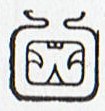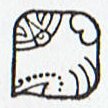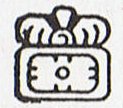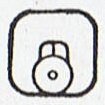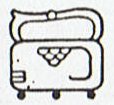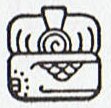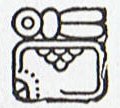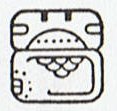2. In South America there are lots of myths telling of a person who is climbing a tree or a high cliff in order to fetch bird eggs ('the bird-nester') and he could correspond to the climbing 'rat' of Easter Island, I thought. Myths are always of help in order to refocus our minds to the right way of looking upon reality, and therefore I will give such an example (from Claude Lévi-Strauss's The Naked Man): There was once an Indian who was married and the father of a boy and a girl. The Trickster, who wanted to appropriate his fine garments and his wife, persuaded him to go and fetch eaglets from the top of a high peak. The Indian took off his clothing and started to climb up the cliff, which he found quite an easy task, since the way to the nest was like a stairway. But the Trickster commanded that the peak increase in height. He made the sides completely smooth so that the Indian was unable to come back down and remained stranded at the top. The Trickster did not attempt (as in Salish mythology) to assume the outward appearance of his rival. He related what had happened but said nothing of the part he himself had played, and claimed that the hero, before disappearing, had told him to take care of his wife and children. The wife consented but it was not long before her new husband started to scold his stepchildren without cause or reason. Such is the feeling with the stepfather or stepmother for children. The woman, who loved her children and was unhappy to see them being ill-treated, decided to divulge the suspicious circumstances in which her husband had disappeared. Everybody went to the foot of the peak which was strewn with beads; these were the tears shed by the hero who had wept for days and nights. They called upon the wild geese to help: they flew to the top, put the man on their backs and landed him safely. He was at once comforted and cared for; he recovered his health and strength. He then set off to look for his wife and children; he found them again and gave them food, for his rival had deprived the children of food in the hope that they would quickly die of hunger. The hero then hid in a meat sack, jumped on the Trickster and killed him. The corpse was cut up and the pieces scattered. However, the Trickster came back to life. He went away and stopped to rest by a lake, and meditated on death: should death be final or not? On seeing that a stick, then a buffalo turd, and lastly a piece of pith remained afloat after he had thrown them into the lake, he opted for resurrection. However, when a pebble sank, he reversed his decision. It was better that people should die, he concluded, otherwise the earth would quickly become overpopulated. Since that time, people only live for a certain period and die for ever ... At 'noon' (midsummer) Spring Sun ('the bird nester') disappears from sight among the clouds and someone else of inferior quality suddenly has taken his place. Spring Sun is dropping pearly tears from somewhere above, he has turned into a 'Weeping God'. In the Mayan calendar the hanging droplets beyond the 8th (summer solstice) month Mol define 4 * 20 = 80 days of rain:
Maybe the word kio is expressing this scenario, how Spring Sun is defeated, disappears, hides in smoke, etc. He has turned into a little weak one. Yet, later on he will come out as a winner:
|
